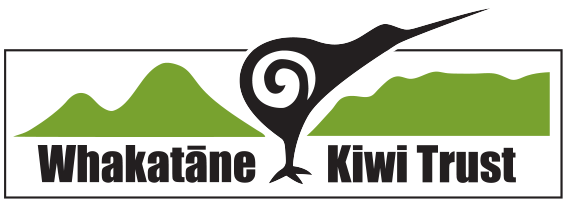Dogs - Man’s Best Friend, but Kiwi’s worst enemy.
We all love our fur babies, be they cats or dogs. And as dog owners, we would be horrified if our dog was responsible for attacking anything – other than the soft toy we bought for it at the vets. We walk them, feed them delicious food, play with them, some of us even let them sleep on our beds 😊. Let’s face it they are our companions, our buddies; we are their ‘pack’, and they are devoted to us.
And yet we still fail them and, consequently, cause the deaths of Kiwi and other ground-dwelling native species.
The thing is, not all of us tuck our dogs up at night, nor do we have a secure yard for them. And it usually stems from that wonderfully relaxed “she’ll be right” attitude of ‘My dogs don’t wander, and if they do, it isn’t far’. I’ve heard an “I’m too busy to take them to kiwi aversion courses” or even “yes, I knew there was kiwi about, but not THAT close.”
I work with a dedicated group of hard-working volunteers as part of a kiwi trust near the coast. It is a beautiful spot, with golden sands, lots of visitors (when we are not in lockdown) and Kiwi in the bush in our backyards. How lucky are we!
We monitor breeding kiwi and kiwi chicks that hatch in situ, and this last summer, we had one of our chicks killed by a dog. The chick had managed to get to 800g, so we felt pleased with ourselves until we got the mortality signal and found what we found.
The next bit is utterly heartbreaking and very graphic, so if you are squeamish, skip the paragraph below, but it highlights how awful an attack by a dog can be. This came word for word from the postmortem report.
“Diagnosis Severe: soft tissue and musculoskeletal trauma consistent with a dog attack.
Comments: There was bruising to much of the skin with tearing and haemorrhage in the underlying soft tissues; a solitary puncture wound was present in the abdomen. All the ribs had been separated from the spine, which itself was fractured in at least three places. There were fractures to the right leg, and there was severe damage to the internal organs. The puncture wound along with the presence of shaking/crushing type injuries are most consistent with a dog attack; the presence of haemorrhage indicates the bird was alive when the injuries were inflicted”.
Photo Credit – Stuff.co.nz
And that is it in a nutshell – Kiwi do not have a chance in hell when it comes to dogs. So, what can we do about it, and I say that in a collective way?
We all need to do our bit; even if we don’t own a dog ourselves, small thingscan help.
Ensure your dogs can’t get out of the section, and remember they are very intelligent animals; you might think they are contained!
Register and microchip your dogs
De-sexing can go a long way to stop aggressive, hunting type behaviour
Attend kiwi aversion training for your dog
Know before you go – check onlinewhere you can take dogs; some councils have changed their dog codes of practice.
https://www.doc.govt.nz/parks-and-recreation/know-before-you-go/dog-access/
If you are on the beach - keep an eye out for wildlife or signposted exclusion areas and carry a leash about with you ALL the time.
Advocacy, if you see people in the area where their dog should be on a leash, let them know. They might not realise that Kiwi are nesting just 4 meters off the road! ON the other hand, praise folk you see that already have a lead on their dog
With hunting dogs, get a GPS tracker for the collar; not only do you not want to lose a good pig dog, but you also don’t want that dog to go round killing kiwi en masse either.
Enjoy having your dog but also enjoy knowing the wildlife in your area is safe too
Written by Claire Travers
WReNNZ Committee Member




